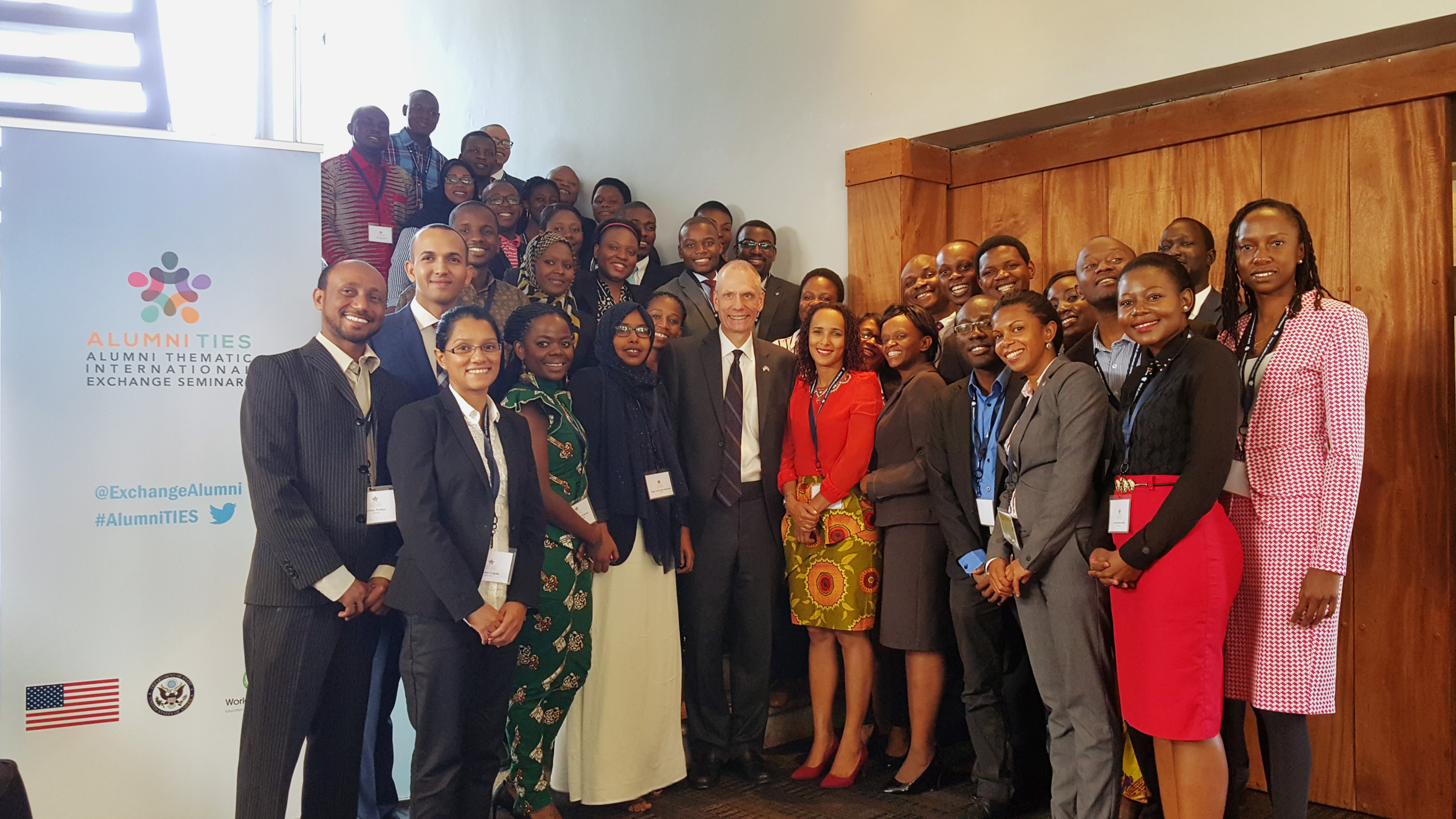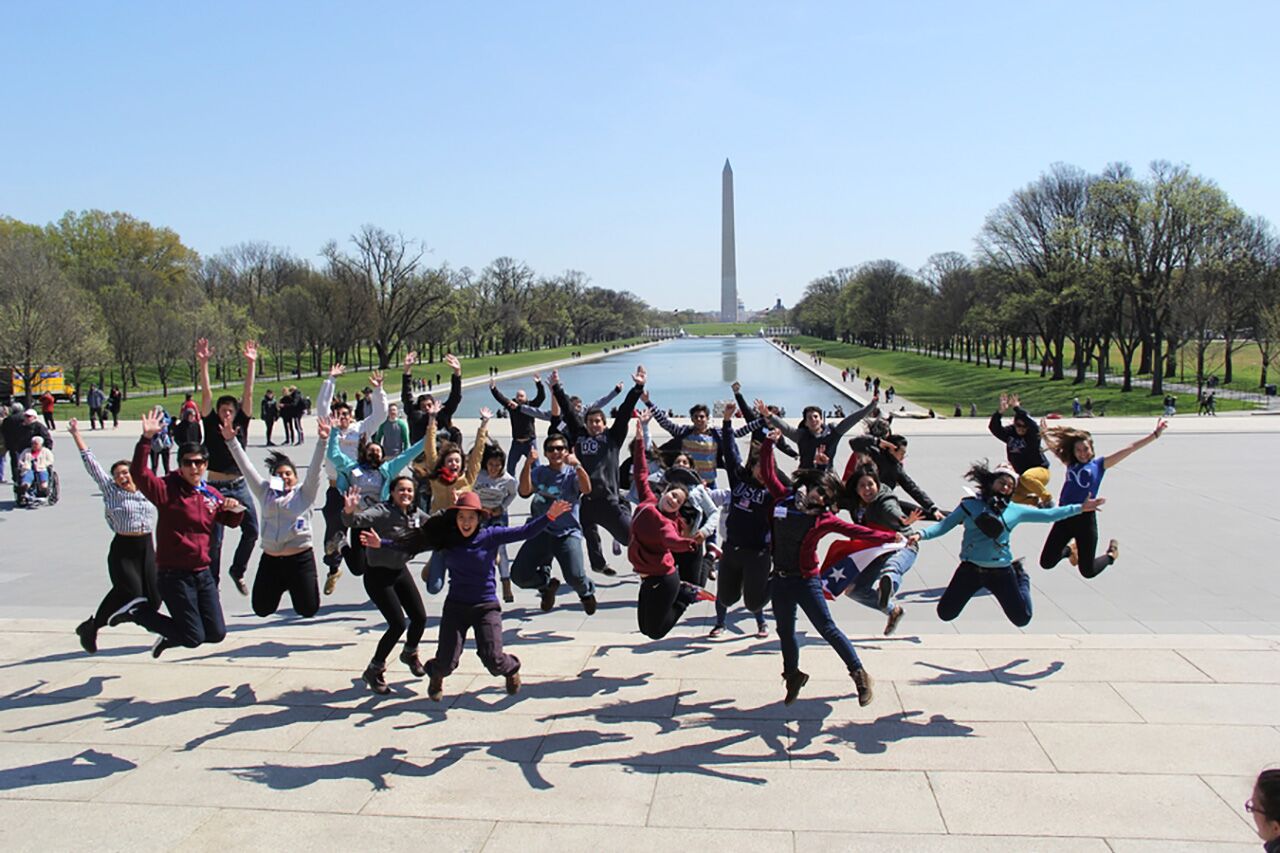-
What We Do
- WHERE WE WORK
-
About Us
 Welcome Message from Carol Jenkins
Welcome Message from Carol JenkinsFor more than 90 years, World Learning has equipped individuals and institutions to address the world’s most pressing problems. We believe that, working together with our partners, we can change this world for the better.
On my travels, I’ve had the opportunity to meet with many of those who have joined us in this mission. In Baghdad, we’ve trained more than 2,300 Iraqi youth who are already giving back at home. In London, our partners in the TAAP Initiative strongly believe that we are all responsible to practice inclusion. And in Vermont, our Experiment in International Living and School for International Training participants prove every day that they have the tools and the determination to change the world.
Please join us in our pursuit of a more peaceful and just world.
- Get Involved
Country: Saint Lucia
Alumni Thematic International Exchange Seminars
Participant Profile
Participants are alumni of U.S. government-sponsored exchange programs and vary in age and level of expertise, but all will be engaged in the seminar topic and highly motivated to create change in their communities.
Please consult the list of U.S. government-sponsored exchange programs below.
- U.S. citizen: https://exchanges.state.gov/us
- Non-U.S. citizen: https://exchanges.state.gov/non-us
Participant Selection
Alumni TIES participants who are not U.S. citizens are nominated by the U.S. Embassies or Consulates in their countries. Please contact the U.S. Embassy or Consulate in your country to learn how you can participate in Alumni TIES. Potential Alumni TIES participants who are living in the United States can apply for specific seminars managed by World Learning. The web link to the online application will be distributed widely by the Office of Alumni Affairs of the Bureau of Educational and Cultural Affairs.
All participants for Alumni TIES seminars are selected by the U.S. Department of State.
Program Design
Alumni TIES seminars take place in six world regions and the U.S.; each seminar is three to four days for small groups of alumni. The seminars include speakers, capacity development trainings, and alumni networking activities. Through the small grants initiative, alumni have the opportunity to take action and make a positive difference in their communities.
Learn More
Watch more videos about the Alumni TIES program.
Read stories from past participants about their experiences at the seminars or with their small grant projects on the Alumni TIES blog.
For information on programs for U.S. government-sponsored exchange program alumni visit the International Exchange Alumni website.
Alumni TIES is sponsored by the U.S. Department of State with funding provided by the U.S. Government and supported in its implementation by World Learning, in partnership with the Office of Alumni Affairs of the Bureau of Educational and Cultural Affairs (ECA).
Online Professional English Network Program (OPEN Program)
Youth Ambassadors Program
In-Person Youth Ambassadors Programs:
Three-week, Youth Ambassadors programs commence in various locations across the United States, including San Francisco, CA; Washington, DC; or in Brattleboro, VT. Participants then travel in smaller cohorts to host communities across the country. All inbound programs include a segment in Washington, DC.
The U.S. Youth Ambassadors exchanges follow a similar program cycle, beginning with a U.S.-based pre-departure orientation, followed by international travel to the exchange country. Three-week, single, and multi-country exchanges take place between June – August; exact dates will vary by exchange country.
The Adult Mentor Role:
The Adult Mentor, or Adult Educator, role is an important part of the Youth Ambassadors Program. These adult program participants support the development of group cohesion and community among program participants; assist youth participants in cultural exploration; engage youth participants in learning and help connect their experiences to their Community-Based Service Initiatives; and continue mentorship development following the virtual or in-person exchange by supporting youth participant project implementation. Youth Ambassadors Adult Educators will:
- Facilitate participants’ progress on program activities. This may include supporting Youth Ambassadors Program staff with check-ins on individual participants’ progress; and providing insights, guidance, and encouragement on participants’ assignments and discussions.
- Build the capacity of participants. A key role of the adult educators is to build the capacity of youth participants by enabling them to solve issues or problems as they arise. Youth Ambassadors Program staff do not expect adult educators to solve problems, but rather to empower students to solve their issues/problems themselves.
- Serve as a resource. Adult Educators will serve as a resource for the student teams by sharing their technical expertise, organizational experience, professional networks, and life experience. In other words, if youth participants have questions and are in need of resources to get to the next level, adult educators should point them in the right direction, based on their experience and connections. Following the program, Adult Educators will support youth participants as they implement their community projects. Adult Educators will be available for questions and guidance as participants need.
- Act as a cultural bridge. Adult Educators serve as a “cultural bridge” if youth participants have difficulty understanding each other or any part of the program.
Connect with Youth Ambassadors
- Tumblr Link: http://wlyap.tumblr.com/
- Youth Team Instagram: https://www.instagram.com/youthambassadorsexchange/
- Youth Team Facebook: https://www.facebook.com/YouthAmbassadorsExchange
Contact Us
Questions? Contact our Admissions Office at [email protected] or at 1-877-591-9626 inside the U.S. or at 1-802-258-3485 outside the U.S.








